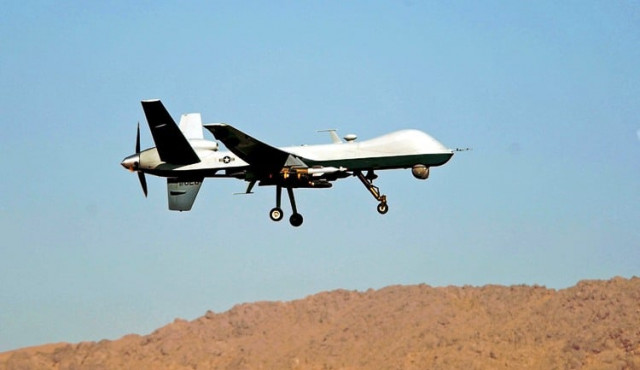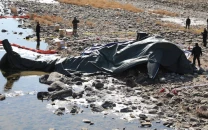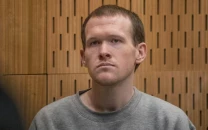UN investigator decries US use of killer drones
Investigator calls on Washington to justify policy.

UN investigator decries US use of killer drones
Christof Heyns, UN special rapporteur on extrajudicial, summary or arbitrary executions, urged Washington to clarify the basis under international law of the policy, in a report issued overnight to the United Nations Human Rights Council. The 47-member Geneva forum is to hold a debate later on Tuesday.
The US military has conducted drone attacks in Afghanistan, Iraq, Pakistan, Somalia and Yemen, in addition to conventional raids and air strikes, according to Heyns, a South African jurist serving in the independent post.
"Disclosure of these killings is critical to ensure accountability, justice and reparation for victims or their families," he said in a 28-page report.
"The (US) government should clarify the procedures in place to ensure that any targeted killing complies with international humanitarian law and human rights and indicate the measures or strategies applied to prevent casualties, as well as the measures in place to provide prompt, thorough, effective and independent public investigation of alleged violations."
Citing figures from the Pakistan Human Rights Commission, he said US drone strikes killed at least 957 people in Pakistan in 2010 alone. Thousands have been killed in 300 drone strikes there since 2004, 20 percent of whom are believed to be civilians.
US Secretary of State Hillary Clinton last week defended Washington's use of drone strikes, days after one killed one of al Qaeda's most powerful figures in Pakistan, Libyan-born Abu Yahya al-Libi.
Dramatic increase
"Although figures vary widely with regard to drone attack estimates, all studies concur on one important point: there has been a dramatic increase in their use over the past three years," Heyns said.
"While these attacks are directed at individuals believed to be leaders or active members of al Qaeda or the Taliban, in the context of armed conflict (e.g. in Afghanistan), in other instances, civilians have allegedly also perished in the attacks in regions where it is unclear whether there was an armed conflict or not (e.g. in Pakistan)," he said.
Human rights law requires that every effort be made to arrest a suspect, in line with the "principles of necessity and proportionality on the use of force", the investigator said.
There had been no official or satisfactory response to concerns laid out by his predecessor, Australian expert Philip Alston, in a 2009 report on his investigation a year earlier.
"The Special Rapporteur again requests the Government to clarify the rules that it considers to cover targeted killings ... (and) reiterates his predecessor's recommendation that the government specify the bases for decisions to kill rather than capture 'human targets' and whether the State in which the killing takes places has given consent," Heyns said.
Pakistani Ambassador Zamir Akram took the floor in Monday's opening session to say that his country consistently maintained that the use of drones was illegal and violated the sovereignty of Pakistan, "not to mention being counter-productive".
"Thousands of innocent people, including women and children, have been murdered in these indiscriminate attacks," he said.
UN High Commissioner for Human Rights Navi Pillay, who made an official visit to Pakistan this month, said in a speech on Monday it was "unclear that all persons targeted are combatants or directly participating in hostilities".
States had an international obligation to ensure that attacks comply with international law and to conduct transparent, credible inquiries, she added.



















COMMENTS
Comments are moderated and generally will be posted if they are on-topic and not abusive.
For more information, please see our Comments FAQ